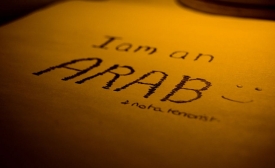charlie hebdo
As the killings at a French satirical magazine stunned the world last week,Turkey’s government went on a mission: to defend its brand of political Islam. In a summary of comment by Turkish officials distributed by the prime minister’s Office of Public Diplomacy, the words “Islam,” “Islamophobia” and “Muslim” were mentioned 17 times. Columnists at pro-government newspapers suggested the attacks were planned by intelligence services to justify hostility to Muslims. Foreign Minister Mevlut Cavusoglu warned that Europe was becoming more anti-Islamic.
The murders of cartoonists and French police officers at the newspaper Charlie Hebdo last week have sparked a vigorous debate about tolerancefor, and even encouragement of, blasphemy in a free society. (...) But in discussing the potential costs of the Charlie Hebdo attacks and other violent responses to crude depictions of the prophet Muhammad, it’s important that we acknowledge the full spectrum of speech that’s in potential danger.
“Showing up is 80 percent of life” remarked filmmaker and writer Woody Allen in 1977, a quote that if taken to heart could have saved the Barack Obama administration lot of woes and embarrassment in the way it approaches policy and politics across the globe. Obama’s failure to show up or send the vice or an ex-president to Paris’ massive rally on Sunday in solidarity with Charlie Hebdo and freedom of speech, vividly illustrates the decline of U.S. soft power and absence of American leadership on the global stage.
The Islamic State terrorist group has launched a big social media campaign to try to capitalize on the Paris massacre. Twitter feeds and other social media messages began Sunday, urging each Muslim to act as a “city wolf” and kill co-workers and fellow commuters.
The Charlie Hebdo murders have reinforced anti-Muslim and anti-Arab sentiment that even when invisible always simmers just beneath the surface of public opinion in much of the West.

Even in this emotionally fraught time most Arab states continue to ignore public diplomacy, writes Philip Seib in the CPD Blog.
Barack Obama’s administration has come under withering criticism for failing to send a top U.S. official to Paris for a high-profile solidarity rally held after last week’s bloody terrorist attacks there. On Monday, Jan. 12, the White House admitted it made a mistake and scrambled to send Secretary of State John Kerry to France to help smooth over any bad feelings.
BBC reports there were “40 world leaders” present. But President Obama wasn’t one of them; Vice-President Biden and Secretary of State Kerry apparently weren’t there, either.(...) Is there some particularly good “smart diplomacy” reason why we would be absent when so many others were present?







